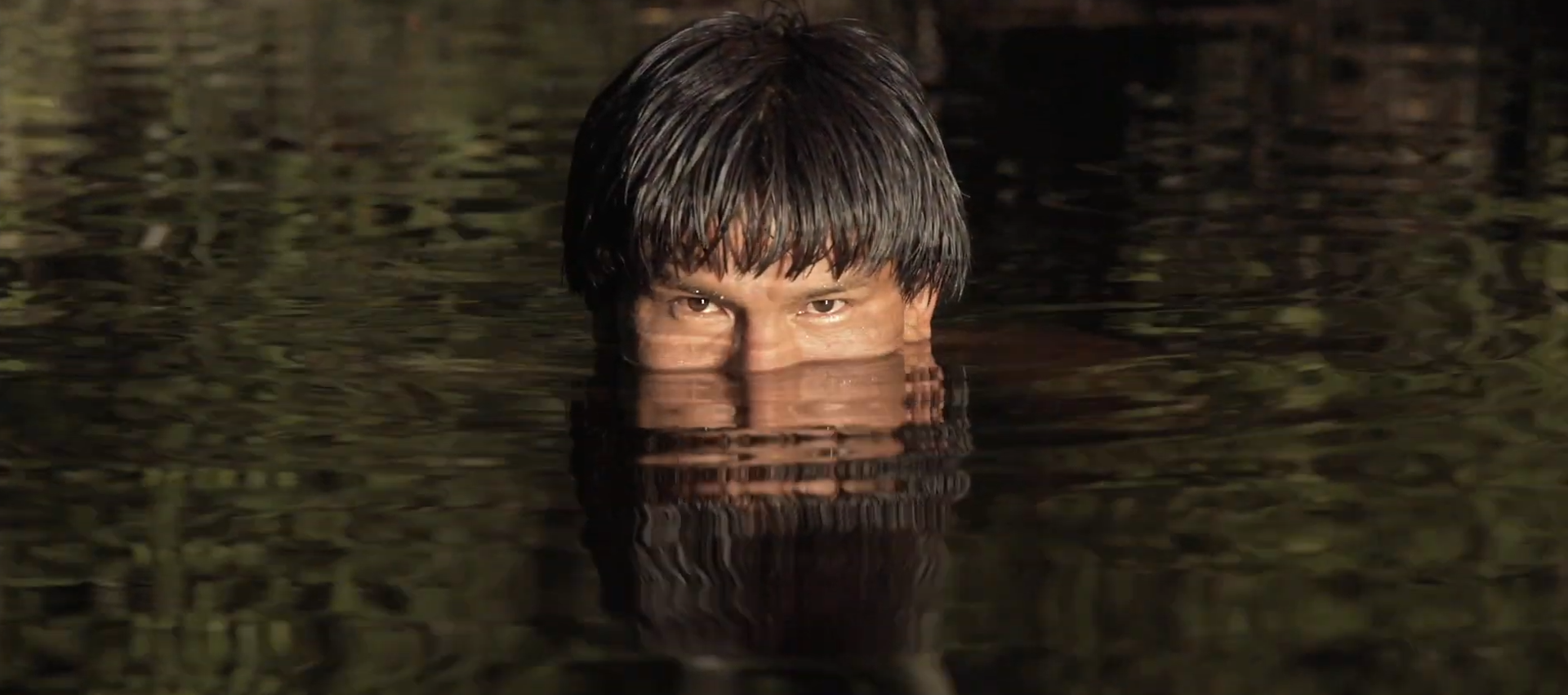Interdependence reaches the channels of Latin America
06.04.2020The film made up of 11 short films that reflect on the environment will be released on April 22

Interdependence is a cinematic polyphony about climate change.
The project, directed by the NGO Art For The World, comprises eleven stories illustrated by world-renowned filmmakers who propose their perspective on the relationships and ways in which humanity is linked to its natural environment. Climate change in multiple dimensions and scales complicates this relationship, and we ask ourselves, what possible solutions are there?
TAL presents this essential film to think about today's world, which will be released jointly on April 22, Mother Earth Day.
We spoke with Adelina Von Fürstenberg, president of the organization Art For The World, who gives us details about the Interdependence production process.

How did the idea of Interdependence arise?
Most of Art For The World's projects are inspired by the Human Rights Articles as well as UN’ Sustainable Development Goals. Below, the most recent example of our cultural trilogy of sustainable development through arts, in collaboration with many artists and filmmakers: Food, Aqua and Interdependence. From 2013 to 2015 AFTW curated and organized a large traveling exhibition of Food in Switzerland, Brazil and France with more than 60 artists who worked on the concept of Mother Earth, Agriculture and Nutrition in view of the Expo 2015 in Milan (with catalog, production of works and videos; in the three countries, the number of visitors was approximately 400,000). Between 2017 and 2018 AFTW curated and organized a second traveling exhibition on the theme of water (Aqua) in Switzerland, Brazil and Italy with the participation of more than 30 artists reflecting on the essential questions of water (with catalog, production of works and video; in the three countries the number of visitors was approximately 200,000 people). Between 2018 and 2019 Interdependence, a film composed of eleven short fiction films on climate issues was created and produced as a direct consequence of these two previous projects. Concerning our past film productions, AFTW in 2008-2009 produced and distributed Stories on Human Rights for the 60th anniversary of the Universal Declaration of Human Rights, an omnibus movie composed by 22 short films by well-known filmmakers, among them, Pablo Trapero from Argentina and Daniela Thomas from Brazil. In 2010 Then And Now: Beyond Borders and Differences, seven short films on the article 18 of the Human Rights the freedom of believes, with from Brazil Tata Amaral, from France Fanny Ardant, from Iran Jafar Panahi and so on.
How was the selection and call for filmmakers?
The filmmakers have been selected by a criteria including strong professional background, recently awarded films in the major film festivals, and above all, by a strong commitment to addressing issues and themes related to climate change. Each has proposed a synopsis on one of the four proposed theme: water, air, earth and fire, and directed his short movie without any restriction of genre (fiction, documentary, cartoon). The goal is to raise awareness on environment and climate change, educating, providing perspective and hope for our future generations.
Why is it important to raise awareness about the environment through audiovisual media?
Audiovisual media and cinema is today’s most effective and relevant medium to communicate messages in a universal language, and artists - in particular filmmakers - are more and more often asked to bring their experience to the service of communities, whose collective heritage forms the basis of understanding our common issues faced by the Planet and its future generations. Cinema as a universal language is able to mediate between the poetic and the social, offering us more than ever the possibility to express and expand empathic feelings, in this case towards Nature and our Planet. If we look to the past, already our hunter and gatherer ancestors used art in its primordial form in cave paintings to represent humans and nature in coexistence, providing us with an early record of this close connection.
Why is it important to screen the film on Latin American tv channels? Latin American and Caribbean countries have ratified the Climate Change Convention and the Kyoto Protocol to reduce their greenhouse gas emissions (mitigation) and to cope with the impacts of climate change (adaptation). Some of the films are exactly about these issues. There are other issues such as water and some of the films are to remind that climate change has had a profound effect on the region's freshwater resources, with important consequences for ecosystems and societies.
What new relevance does Interdependence have in the context of the covid-19 pandemic?
In the context of this specific pandemic, re-appropriating the notion of interdependence through creative expression is essential to reflect upon the positioning of humankind and nature, to understand our existence within, rather than being above nature. Once the covid-19 will be over, we have to be very careful and must not lead to arrogance of Anthropocene/ humans behavior to claim all natural resources for ourselves, but rather the experience should serve to constantly remind us of the incredible complexity and richness found in the wild life and nature to be awed.



more info at https://www.interdependencefilm.com/